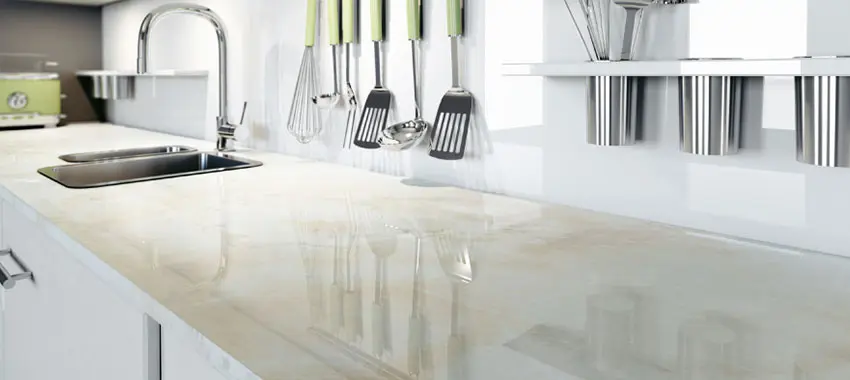
How to Tell the Difference between Marble and Granite
- Posted on
- FlintstoneCountertops
On first look, marble and granite countertops look similar. Both are natural and porous, which can be confusing to many new homeowners. But are the two similar? Absolutely not.
While the two materials are similar in some aspects, they have their differences. If this is the first time buying the countertops, you need to be cautious, so you don’t buy the wrong one. To help you out, here is a guide on how to tell the difference between marble and granite:
Origin
Both marble and granite are natural, meaning they are both acquired through mining and excavation, but they have a few differences.
After being buried for millions of years, granite is a kind of igneous rock. It’s a byproduct of molten magma that has been seasoned down and solidified for decades. Granite forms after going through periodic heating and cooling, and this makes it hard and durable.
Marble goes through the same formation process as granite, but marble doesn’t involve magma heat. A marble is a combination of sedimentary rocks and other natural elements. It results after years of natural meshing of rock and soil. After being exposed to heat and pressure, you have the natural design of the stone.
During its making, plenty of minerals are involved, so marble tends to come in a wide range of colors. This means as a buyer, you have plenty of designs and colors to choose from.
Cost
Cost is often a deal-breaker when you are buying countertops, with marble being more expensive than granite. You should note that the price of the countertops isn’t only the buying cost. You also need to factor in the cost of installation. You can’t install the countertops by yourself, so you will need to hire a professional to help you out.
The installation technicians have different rates depending on their experience level, insurances, and location. It’s up to you to research and find a contractor that will provide you with great service at the least cost.
When you are operating on a tight budget, avoid hiring uptown companies as they will charge you a premium fee for nothing. You should note that the high fees charged by these companies aren’t a reflection of the services they provide, but rather than the fee they have to charge to stay afloat.
Simultaneously, avoid extremely cheap companies as they are most likely inexperienced and will do a shoddy job. Others will damage your countertops, which can lead to an expensive loss.
As mentioned, you need to do your research and find a company that provides you the sweet balance between cost and experience.
Porosity
As mentioned in the introduction, both marble and granite are porous, meaning that water penetrates the inner layers, putting the countertops at staining risk. While this is the case, marble is more porous, so you need to seal it more often to prevent it from staining.
Despite the high porosity, marble is still compact and sturdy, so it makes a great choice when you are looking to install durable and elegant kitchen countertops.
The marble’s high porosity makes it an ideal candidate for installation in hotter climates due to its ability to repel heat.
Although granite is less porous, you should note that it’s still porous, so you should protect it from oils, wine, condiments, and other materials that can stain the surface.
Aesthetics
For the untrained eye, both marble and granite look the same, but they have several distinct physical attributes that you can pick when you are cautious.
For example, granite has a veiny look that resembles specks on the surface and differs in color, where the different slabs have a variety of hues. Marble, too, has a veiny pattern, but the veins are larger and run through the slab with fairly consistent colors.
Durability and maintenance
For the countertops to last for a long time, you need to ensure they are properly installed by experienced granite installers Rockville or other professionals. Since marble is more porous, it’s more susceptible to stains and spills, so you will need to clean it up and seal it more often.
Granite is less porous, but you will still need to seal it at least once a year to improve its ability to resist stains and spills.

